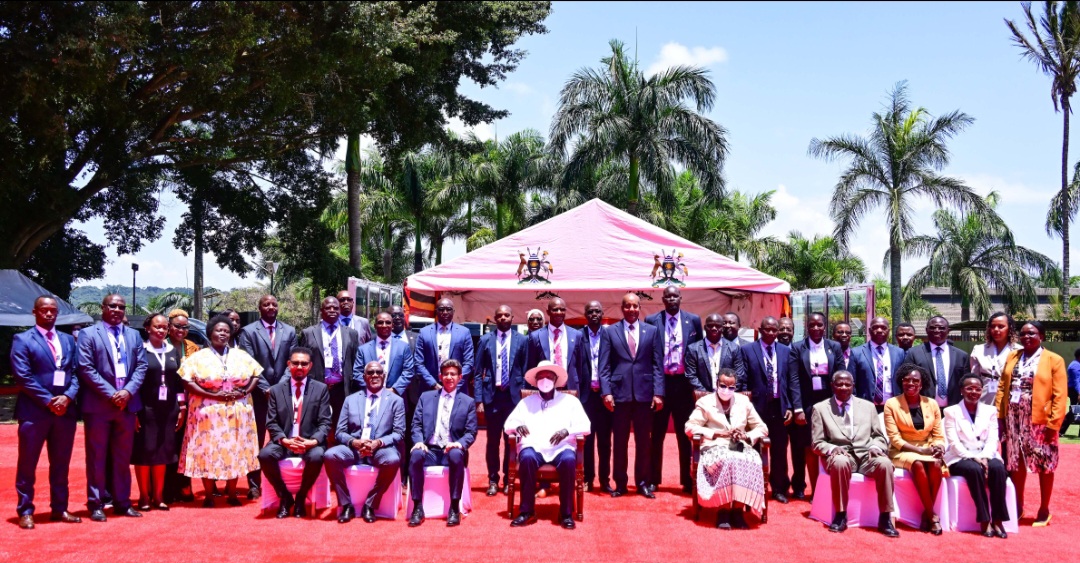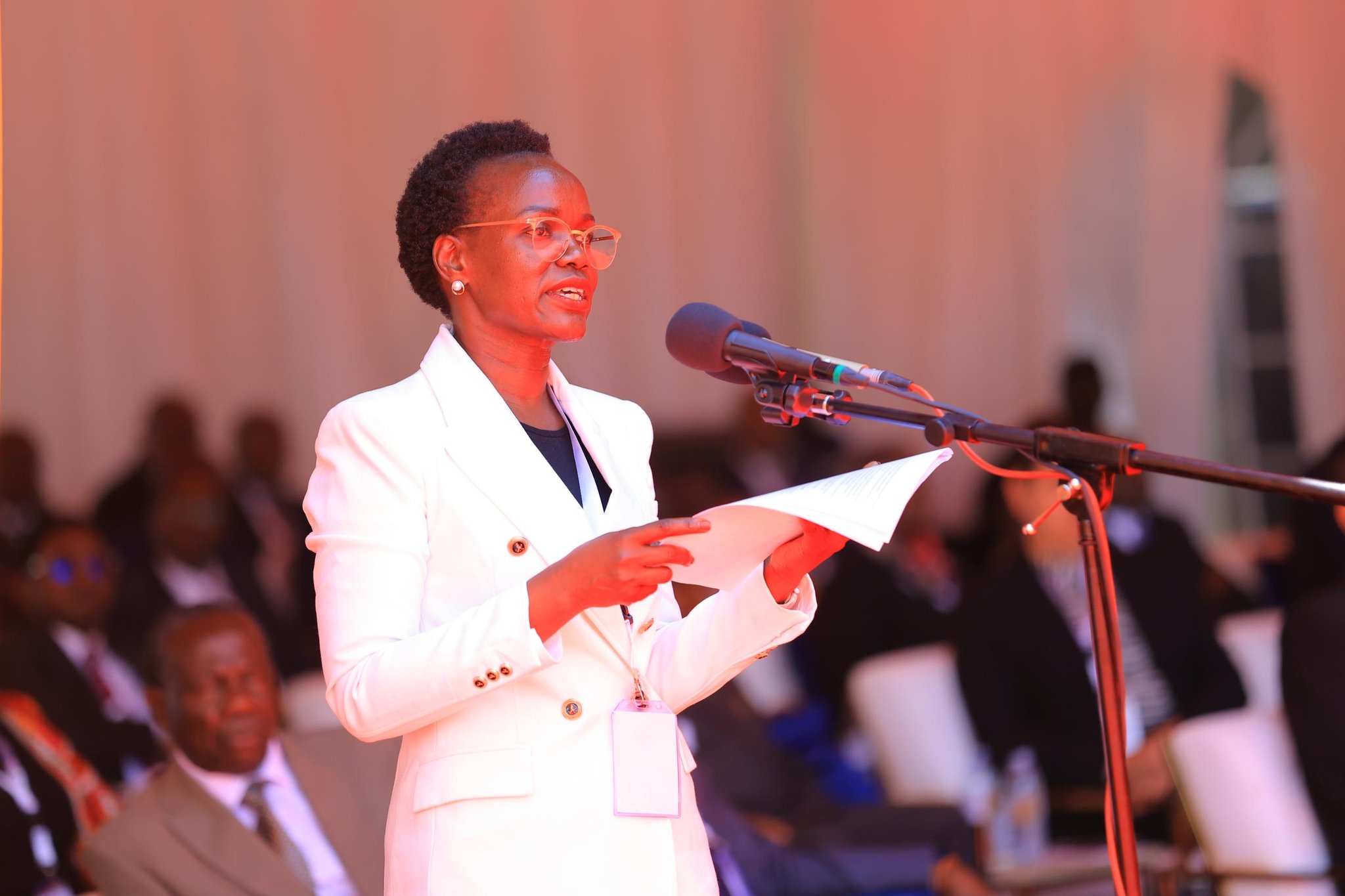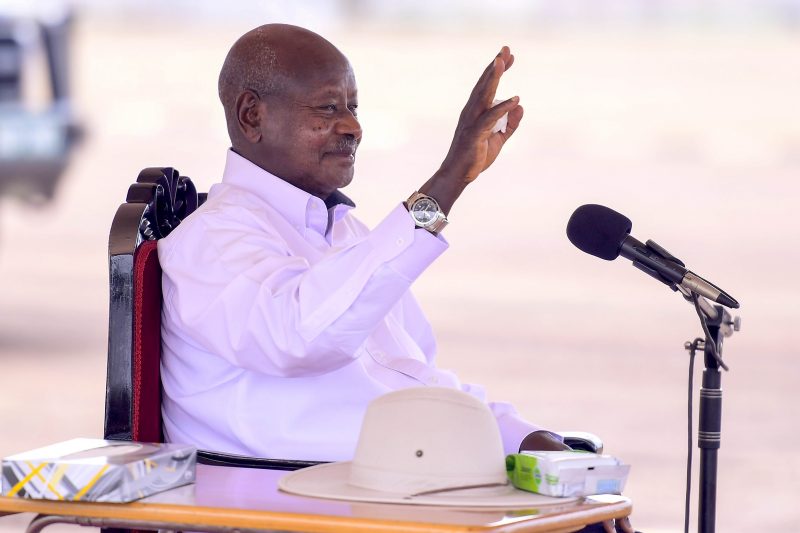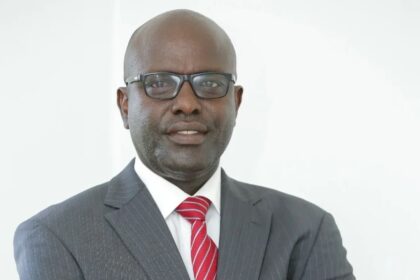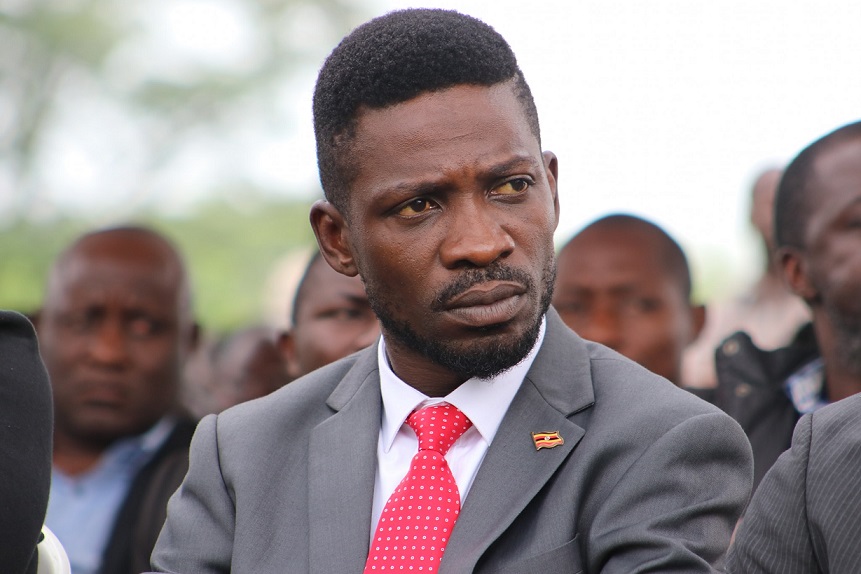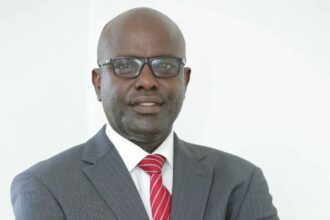President Yoweri Kaguta Museveni has emphasized the central role of development finance institutions in Africa’s transformation, urging planners and financiers to strike a careful balance between infrastructure spending and “results-generating projects” that draw millions of Ugandans into the money economy.
The President, who was accompanied by the First Lady and Minister of Education and Sports,Maama Janet Kataaha Museveni, made the remarks today as he officially opened the inaugural Uganda Development Finance Summit at the Commonwealth Resort Hotel, Munyonyo.
The two-day conference, hosted by the Uganda Development Bank (UDB), brought together policymakers, government leaders, development financiers, the private sector, and international partners to deliberate on how development finance can accelerate Africa’s social and economic transformation.
“Recently, we had to struggle with the PDM. We diverted money there to help villagers join the money economy. When they do that, production goes up, but you still have other demands, like infrastructure. You can have a nice road, but you have nothing to transport on that road if there’s no production,” he said, after sharing a candid observation about Uganda’s recent fiscal choices, particularly the diversion of resources to the Parish Development Model (PDM).
The President argued that national planners must carefully balance investments that yield immediate productivity with those that merely provide utility without addressing structural poverty. He recalled traveling in 1965 from Mbarara to Soroti in a school bus to play cricket and football on a tarmac road that existed.
“That road was already tarmac, and we have done it several times since but you still have poor people along the road. That is why we said, “Let’s decelerate a bit on infrastructure spending and deal with those outside the money economy.” Give them cheap capital so they join production,” H.E. Museveni explained.
The President also faulted post-independence technocrats for directing resources to social infrastructure like schools and health centres while neglecting fundamental economic enablers like electricity and railways.
“Even when they talked of roads, they never mentioned the railway, never mentioned electricity. Yet these are the backbone of a capitalist economy. How can a capitalist not know how money is generated? Road transport is expensive compared to rail, and without electricity, how do you get affordable inputs for production?” he wondered, further expressing gratitude to the European Union for supporting the rehabilitation of the standard gauge railway but lamenting what he described as irrational development financing.
“All the traffic, the cargo, the fuel tankers, and the passengers are on a few roads. Rationally, the railway should carry cargo cheaply, the pipeline should move fuel, and roads should serve passengers and light cargo. But this rationalization is impossible because funding for infrastructure is difficult to get and when you get it, it is only for roads—never for railways, never for electricity,” he emphasized.
Why Uganda needed UDB:
Tracing back to the 1960s and the limitations of private capital, President Museveni said it became clear early on that relying on private savings or foreign direct investment alone would not propel Uganda into industrialization.
“Your own people had no savings, and when they had money, they squandered it. Foreign investment could not easily be attracted compared to China. That is why I insisted we needed a Uganda Development Bank – a government institution that is not looking for profit but gives capital for infrastructure and wealth creation,” he said, underscoring that the role of the Uganda Development Bank is to provide patient capital to finance and transform the four sectors where true wealth is generated, namely, commercial agriculture, manufacturing and artisanship, services such as tourism and ICT.
“People don’t understand. Wealth is personal, but development is collective. Development is for the drunkards, the witch doctors, everybody. But wealth is in those four sectors. That is why our answer was UDB,” he said.
Turning to the broader continental context, President Museveni stressed that successful cities and industries need not only cheap money, electricity, and transport, but also markets.
“As a strategist, I can tell you that integration of the African market is a matter of life and death. Without a big market, you cannot grow. That is the difference between the United States and Latin America. Latin America has water, minerals, everything, but remains poor because of market fragmentation,” H.E. Museveni argued, saying that Uganda and other African countries must relentlessly pursue market integration, not just through rhetoric but through political will and decisive action.
President Museveni criticized Africa’s failure to capture value from its own resources, giving the example of coffee.
“You produce a kilo of coffee and get $2.5. Somebody processes it into Nescafé and sells it for $40. Who is the donor? You are the donor, but you don’t know,” he said.
He challenged international financiers to channel patient capital to Africa, noting that China had already demonstrated the viability of such investments in Uganda.
“With Chinese money, we built Isimba Dam and now produce electricity at 4.8 cents per kilowatt hour. With Karuma, we produce at 2.8 cents. When we finish paying the loans, the cost will fall to 1.2 cents. That is transformation. That is what development means,” President Museveni said.
President Museveni also highlighted the two qualities needed for Africa’s transformation, which are vision and integrity, saying that at independence, Uganda’s economy was producing only the three Cs and three Ts—coffee, copper, cotton, tobacco, tourism, and tea, where only 9% of households were in the money economy and 91% were outside.
“So, if you were a leader then, what was your vision? Policymakers must be like doctors—diagnose the disease, prescribe the cure,” he said, urging Ugandans to embrace saving and capital accumulation, stressing that development requires sacrifice and patience.
On the other hand, the President blamed commercial banks for what he termed “greed and dependency creation.”
“How do you lend at 22% per annum when inflation is below 5%? At such rates, people cannot do serious business, only quick import trade—perfumes and wines. These banks are engines of Africa’s dependence,” he said.
He reiterated that UDB remains the answer to financing productive sectors with affordable credit. “This one is ours. It will not run away. It is a guarantee,” President Museveni said.
At the same summit, the Minister of Finance, Hon. Matia Kasaija, said the event came at a timely moment for Uganda and Africa.
“Africa has immense potential and is poised to grow faster than most regions of the world. In 2024, five of the ten fastest-growing economies were in Africa. Uganda grew at 6%, compared to a world average of 2.7%,” he said, further projecting that Uganda’s GDP, nearly $50 billion in 2023, would rise to $500 billion by 2040, anchored on agro-industrialization, tourism, mineral development, including oil and gas, and ICT innovation.
He emphasized UDB’s role in unlocking finance for these anchor sectors.
Dr. Patricia Ojangole, Managing Director of UDB, underscored that national development banks are central to building resilient and inclusive financial systems.
“Development finance institutions have propelled transformation globally. Asia’s rise and Brazil’s growth are credited to strong national development banks. Uganda was visionary in keeping UDB alive when others closed theirs during structural adjustment,” she said.
Dr. Ojangole noted that while commercial banks channel 45% of credit to non-productive sectors like real estate, UDB directs over 80% to agriculture, manufacturing, energy, water for production, education, and health.
“With climate change, digital transformation, and shrinking fiscal space, the role of NDBs is greater than ever. We must use innovative instruments like blended finance, finance digital infrastructure, and develop pipelines of bankable projects,” she said.
Mr. Geoffrey T. Kihuguru, Chairman of the UDB Board, equally stressed that development finance is central to Africa’s transformation.
“We meet at a time of overlapping crises, geopolitical tensions, disrupted value chains, and climate change ; yet Africa faces the urgent task of creating jobs for its youthful population. Development banks, working with DFIs, are uniquely placed to design instruments that expand inclusion, finance underdeveloped regions, and drive industrialization,” he said.
The ceremony was also attended by among others, the Minister of State for Investment and Privatization, Hon. Evelyn Anite; Members of Parliament; Members of the diplomatic corps; the heads of development finance institutions and partner organizations; representatives of civil society and the private sector.
Do you have a story in your community or an opinion to share with us: Email us at Submit an Article



